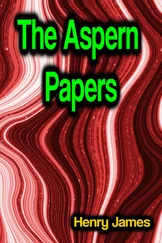Henry James - The American Scene
Здесь есть возможность читать онлайн «Henry James - The American Scene» — ознакомительный отрывок электронной книги совершенно бесплатно, а после прочтения отрывка купить полную версию. В некоторых случаях можно слушать аудио, скачать через торрент в формате fb2 и присутствует краткое содержание. Жанр: unrecognised, на английском языке. Описание произведения, (предисловие) а так же отзывы посетителей доступны на портале библиотеки ЛибКат.
- Название:The American Scene
- Автор:
- Жанр:
- Год:неизвестен
- ISBN:нет данных
- Рейтинг книги:3 / 5. Голосов: 1
-
Избранное:Добавить в избранное
- Отзывы:
-
Ваша оценка:
- 60
- 1
- 2
- 3
- 4
- 5
The American Scene: краткое содержание, описание и аннотация
Предлагаем к чтению аннотацию, описание, краткое содержание или предисловие (зависит от того, что написал сам автор книги «The American Scene»). Если вы не нашли необходимую информацию о книге — напишите в комментариях, мы постараемся отыскать её.
The American Scene — читать онлайн ознакомительный отрывок
Ниже представлен текст книги, разбитый по страницам. Система сохранения места последней прочитанной страницы, позволяет с удобством читать онлайн бесплатно книгу «The American Scene», без необходимости каждый раз заново искать на чём Вы остановились. Поставьте закладку, и сможете в любой момент перейти на страницу, на которой закончили чтение.
Интервал:
Закладка:
Those images, for retrospect, insistently supplant the others; though I have notes enough, I find, about the others too—about the inscrutability of the village street in general, for instance, in any relation but its relation to its elms. What they seemed to say is what I have mentioned; but what secrets, meanwhile, did the rest of the scene keep? Were there any secrets at all, or had the outward blankness, the quantity of absence, as it were, in the air, its inward equivalent as well? There was the high, thin church, made higher, made highest, and sometimes, as at Farmington, made as pretty as a monstrous Dutch toy, by its steeple of quaint and classic carpentry; but this monument appeared to testify scarce more than some large white card, embellished with a stencilled border, on which a message or a sentence, an invitation or a revelation, might be still to be inscribed. The present, the positive, was mainly represented, ever, by the level railway-crossing, gaining expression from its localization of possible death and destruction, where the great stilted, strident, yet so almost comically impersonal train, which, with its so often undesignated and so always unservanted stations, and its general air of "bossing" the neighbourhoods it warns, for climax of its characteristic curtness, to "look out" for its rush, is everywhere a large contribution to one's impression of a kind of monotony of acquiescence. This look as of universal acquiescence plays somehow through the visible vacancy—seems a part of the thinness, the passivity, of that absence of the settled standard which contains, as I more and more felt, from day to day, the germ of the most final of all my generalizations. I needn't be too prompt with it—so much higher may it hold its head, I foresee, when it flowers, perfectly, as a conclusion, than when it merely struggles through the side of the subject as a tuft for provisional clutching. It sprouts in that soil, none the less, betimes, this apprehension that the "common man" and the common woman have here their appointed paradise and sphere, and that the sign of it is the abeyance, on many a scene, of any wants, any tastes, any habits, any traditions but theirs. The bullying railway orders them off their own decent avenue without a fear that they will "stand up" to it; the tone of the picture is the pitch of their lives, and when you listen to what the village street seems to say, marking it, at the end, with your "Is that all?" it is as if you had had your account of a scheme fashioned preponderantly in their image.
I mean in theirs exactly, with as little provision for what is too foul for them as for what is too fair: the very middle, the golden mean, of the note of the common, to which the two extremes of condition are equally wanting; though with the mark strongest, if anywhere, against dusky misfortune and precarious dependence. The romance of costume, for better or worse, the implication of vices, accomplishments, manners, accents, attitudes, is as absent for evil as for good, for a low connection as for a high: which is why the simplification covers so much ground, that of public houses, that of kinds of people, that of suggestions, however faint, of discernible opportunity, of any deviation, in other words, into the uncommon. There are no "kinds" of people; there are simply people, very, very few, and all of one kind, the kind who thus simply invest themselves for you in the grey truth that they don't go to the public house. It's a negative garment, but it must serve you; which it makes shift to do while you keep on asking, from the force of acquired habit, what may be behind, what beneath, what within, what may represent, in such conditions, the appeal of the senses or the tribute to them; what, in such a show of life, may take the place (to put it as simply as possible) of amusement, of social and sensual margin, overflow and by-play. Of course there is by-play here and there; here and there, of course, extremes are touched: otherwise, the whole concretion, in its thinness, would crack, and the fact is that two or three of these strong patches of surface-embroidery remain with me as curious and interesting. Never was such by-play as in a great new house on a hilltop that overlooked the most composed of communities; a house apparently conceived—and with great felicity—on the lines of a magnified Mount Vernon, and in which an array of modern "impressionistic" pictures, mainly French, wondrous examples of Manet, of Degas, of Claude Monet, of Whistler, of other rare recent hands, treated us to the momentary effect of a large slippery sweet inserted, without a warning, between the compressed lips of half-conscious inanition. One hadn't quite known one was starved, but the morsel went down by the mere authority of the thing consummately prepared. Nothing else had been, in all the circle, prepared to anything like the same extent; and though the consequent taste, as a mixture with the other tastes, was of the queerest, no proof of the sovereign power of art could have been, for the moment, sharper. It happened to be that particular art—it might as well, no doubt, have been another; it made everything else shrivel and fade: it was like the sudden trill of a nightingale, lord of the hushed evening.
These appeared to be, over the land, always possible adventures; obviously I should have others of the same kind; I could let them, in all confidence, accumulate and wait. But, if that was one kind of extreme, what meanwhile was the other kind, the kind portentously alluded to by those of the sagacious who had occasionally put it before me that the village street, the arched umbrageous vista, half so candid and half so cool, is too frequently, in respect to "morals," but a whited sepulchre? They had so put it before me, these advisers, but they had as well, absolutely and all tormentingly, so left it: partly as if the facts were too abysmal for a permitted distinctness, and partly, no doubt, as from the general American habit of indirectness, of positive primness, of allusion to those matters that are sometimes collectively spoken of as "the great facts of life." It had been intimated to me that the great facts of life are in high fermentation on the other side of the ground glass that never for a moment flushes, to the casual eye, with the hint of a lurid light: so much, at least, one had no alternative, under pressure, but to infer. The inference, however, still left the question a prey to vagueness—it being obvious that vice requires forms not less than virtue, or perhaps even more, and that forms, up and down the prospect, were exactly what one waited in vain for. The theory that no community can live wholly without by-play, and the confirmatory word, for the particular case, of more initiated reporters, these things were all very well; but before a scene peeled as bare of palpable pretext as the American sky is often peeled of clouds (in the interest of the slightly acid juice of its light), where and how was the application to be made? It came at last, the application—that, I mean, of the portentous hint; and under it, after a fashion, the elements fell together. Why the picture shouldn't bristle with the truth—that was all conceivable; that the truth could only strike inward, horribly inward, not playing up to the surface—this too needed no insistence; what was sharpest for reflection being, meanwhile, a couple of minor appearances, which one gathered as one went. That our little arts of pathetic, of humorous, portrayal may, for all their claim to an edifying ''realism,'' have on occasion small veracity and courage—that again was a remark pertinent to the matter. But the strangest link in the chain, and quite the horridest, was this other, of high value to the restless analyst—that, as the "interesting" puts in its note but where it can and where it will, so the village street and the lonely farm and the hillside cabin became positively richer objects under the smutch of imputation; twitched with a grim effect the thinness of their mantle, shook out of its folds such crudity and levity as they might, and borrowed, for dignity, a shade of the darkness of Cenci-drama, of monstrous legend, of old Greek tragedy, and thus helped themselves out for the story-seeker more patient almost of anything than of flatness.
Читать дальшеИнтервал:
Закладка:
Похожие книги на «The American Scene»
Представляем Вашему вниманию похожие книги на «The American Scene» списком для выбора. Мы отобрали схожую по названию и смыслу литературу в надежде предоставить читателям больше вариантов отыскать новые, интересные, ещё непрочитанные произведения.
Обсуждение, отзывы о книге «The American Scene» и просто собственные мнения читателей. Оставьте ваши комментарии, напишите, что Вы думаете о произведении, его смысле или главных героях. Укажите что конкретно понравилось, а что нет, и почему Вы так считаете.












